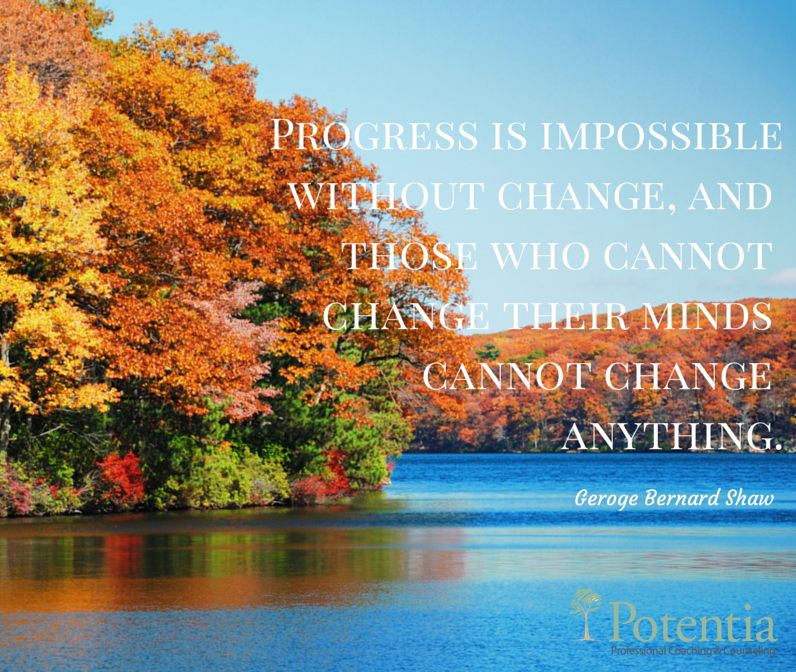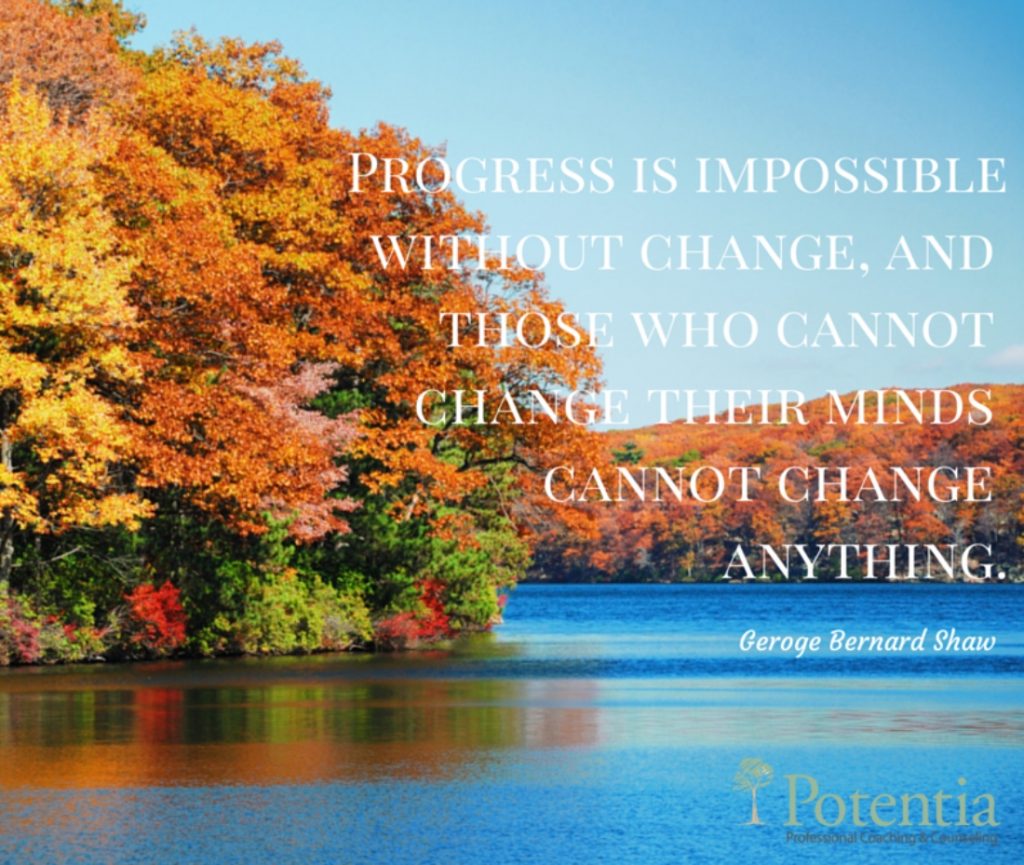Do you have it, and what exactly does that mean? Where do you stand on the change spectrum?
Change
verb \ˈchānj\
: to become different
: to make (someone or something) different
: to become something else
We experience change almost every moment of our lives. Some changes are negative and unwelcome—many times we cannot control that. However, given the amount of change we do initiate on a regular basis, we should all be experts on change. Right? And, if not experts, then we should at least understand why we need to learn how to deal with change.
The big answer:
Change is unavoidable!
There, now that we have cleared the air on that colossal fact, let’s talk about how dealing with this everyday occurrence in a more positive way can lead to a healthier, more satisfying life.
Both positive and negative changes can have a severe impact on physical and mental health. We call this stress. Just ask anyone planning a wedding, getting a promotion, or moving to his or her dream home. Fighting against a change depletes the energy and strength essential to dealing with the change itself. If you are simply coping then you are stuck in a neutral zone, which might work temporarily and be necessary, but ultimately, will not move you to the next level.
So, please indulge me and put on some ‘change-colored glasses’ for a moment to consider these points:
- Process, process, process—(was that clear?) Changing the coat you wear on cold days is very different from living through an organizational change. The process for dealing with real change encompasses many steps to take, many layers to uncover. Really understand this upfront. All major change takes time and cannot be rushed through.
- Adapt a positive mindset towards change. Reframe and find the good, and any possible benefits, in the change.
- Be flexible—a flexible tree is less likely to break in the storm. Always remember to bend and to breathe.
Being proactive with change puts you in control of what lies ahead.
Here are a few strategies for dealing effectively with change:
- Be aware: Don’t stick your head in the sand. If you know the change is coming, evaluate it—really think about what it means to you and how it might impact your life. If it was unexpected—stop and take stock of the situation before reacting to it.
- Acknowledge your feelings about it: Don’t try to convince yourself that you feel differently than you really do. Avoidance is the surest way to stay stuck. How you are feeling may not serve you, but at least be honest with yourself. Name it, and decide if this is a feeling you want to keep around.
- Never forget choice: We may not have a choice about the change we are facing, but we always have a choice about how we respond. What can you accept? What will you reject? What can you do about it?
- See the opportunity: Many times, the changes we dread the most bring about the most positive effects. Try to be open to the opportunities the change may generate.
- Set goals: Have a plan and set goals. They could be simple—get out of bed every day by a certain time and take a shower. Or more complex—have lunch with someone new once a week or take a seminar/workshop on the latest concepts the company merger is bringing to the table.
- Be mindful and relax: Chances are, if you’ve been around awhile, this is not your first big change. You will survive. Lean into the change as much as possible, find ways to relax, and stay mindful of your experience.
Think of any smaller, less-threatening changes in your life and apply some of these points. It’s like anything else—the more you practice, the better you become!
Family, friends, and co-workers are a great support during times of change. In addition, the expertise of a trained life or executive coach can provide professional guidance and support to help keep you structured and on track with the change.
Have a great week!

[/et_pb_text][/et_pb_column][/et_pb_row][/et_pb_section]




